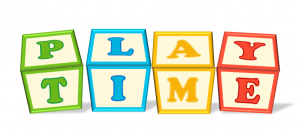
Play is the main occupation of any child, it is their way of exploring their world and how they learn. Playing provides them with opportunities to learn skills related to building relationships with others, how to manipulate their body and objects, and the purpose and function of objects. It builds dexterity, coordination, physical, cognitive and emotional strength.
Play is vital to brain development and allows children to explore their world in a safe manner that enables them to master skills, face their fears, practice adult roles, build confidence and resiliency (Ginsburg, 2007).
There are different kinds of play, structured vs. unstructured, and different stages of play- solitary, parallel, and cooperative to name a few. The type of play children engage in is also important and has changed in the latest shift in society, family structure and technology.
Unstructured play has no script or plan, it occurs naturally. The benefits to unstructured play is that it helps develop creativity and imagination and group cooperative skills. Unstructured play allows children to practice sharing, negotiation and conflict resolution with their peers (Ginsburg, 2007). This is also known as child driven play. Child driven play allows children to practice decision making, develop interests and move and grow at their own pace.
Structured play is organized and follows a plan or script. It is often directed by older children or adults. Structured play includes activities like board games, sports, reading a book, and classes like dance or karate class. This is also known as adult directed play. Adult directed play provides children with opportunities to further develop a targeted skill, follow directions and learn how to act in a structured setting.
Both structured and unstructured play are crucial to developing well rounded executive functioning skills and social skills. “Everything in moderation”. Engaging in child led play assists in building relationships between the parent and child and builds communication between the two. The executive functioning skills they build through play sets them on a path for academic success by providing them with important skills needed to navigate the academic world. For example, working in groups, following directions and rules, organization, attention, problem solving skills, action and consequences and risk taking.
References
Ginsburg, Kenneth. “The Importance of Play in Promoting Healthy Child Development and Maintaining Strong Parent-Child Bonds”, Committee on Communications and the Committee on Psychosocial Aspects of Child and Family Health, American Academy of Pediatrics, Vol. 119, Issue 1, 2007, pp. 182-191.